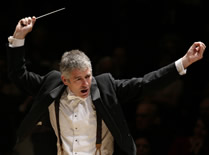Thank you for the appreciative review of our program, “An American Christmas,” which we had the privilege and joy of performing in Asheville just a few days ago.
We would, however, like to correct an important misstatement of fact. Your reviewer, Ted McIrvine, was unhappy about a perceived lack of geographical diversity in our programming from American sources. “My only criticism was that the sources were almost completely from the Northeast,” he writes.
We were utterly surprised to read Mr. McIrvine’s comment. In fact, Southern music was strongly represented in our program. Of the thirty works presented, the following were from Southern songbooks, and are quintessentially Southern in their scalar and harmonic language: The Great Day, Bozrah, Baptismal Anthem, The Cry, New Britain (Amazing Grace), Fulfilment, and Star in the East. A Virgin Unspotted is a “border state” arrangement of an English folksong, Sherburne, of course, is a Northern fuguing tune, but it is still very popular in the South, and we presented it in the Sacred Harp manner, singing the fasola shapes prior to doing it with the text.
From oral tradition, Wayfaring Stranger, I Wonder as I Wander, and Sinner Man come from the white Southern/Appalachian tradition. Sinner Man is also very present in the southern African-American tradition, and Didn’t my Lord Deliver Daniel is an African-American spiritual, as is the Shaker song, Pretty Home. The encore, as well, Jesus the Light of the World, was our homage to African-American communities, North and South.
That adds up to practically half of our program, all in, with Southern connections or origins.
What may have thrown Mr. McIrvine off the scent is the place – Philadelphia – where the most important Southern songbooks, such as the Sacred Harp, were printed. Philly is where the typesetters and the move able type existed, and songbook compilers from the South went there to get their books into print. Notwithstanding, the Southern vernacular melodic and harmonic style is quite distinctive and compelling. It is very much a part of America’s own, indigenous, sacred-music repertoire, and of the program we performed. He who hath ears to hear, let him hear!
Yankees we may be (although, incidentally our baritone was raised in Boone), but we love and honor the musical culture of the South.
Merry Christmas to all!
Anne Azéma
Artistic Director, The Boston Camerata
and
Joel Cohen
Music Director Emeritus, The Boston Camerata












